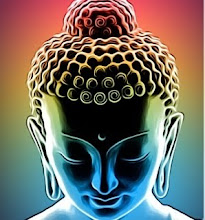I found this on the Shambala site and wanted to share it with you:
You think of the difficult person or people and you wish for them to be free of suffering and the root of suffering. Now, a very interesting thing often happens here. You can really get into wishing them to be free of suffering, because you think if they could be free . . . basically you want them to be the way you want them to be, you know. Could they be free of their lousy personality so that I could feel better? This you might call not quite compassion. It's more like justifying your dislike of them by using a compassion practice.
And the other thing is, of course, being glad that they're suffering. Hard to face, but true. When we really dislike people, maybe we're well aware or maybe we'll get more in touch with it by doing this practice but there's a lot of rejoicing, almost, about their misfortune. Because basically they hurt you and you want them to suffer too. So you're glad when you hear that things aren't going well for them. And you feel pretty unhappy when you hear that everything is fine for them. Those kinds of feelings come up about people that we find difficult. So, rather than feeling bad about that just notice that that's what happening. Have a sense of humor. Whatever it is, let the words go and notice the effect.
Sometimes with difficult people, I find it is also quite helpful to actually imagine different scenarios for them. I have actually cooked up some real genuine compassion for some of the very difficult people in my life by beginning to think of, for instance, something happening to one of their children or something that I know that, if that degree of misfortune happened to them, I wouldn't be glad, that I would really feel compassion for them. So you can use your imagination here if it helps you to feel some kind of compassion for someone who your heart is shut to, a difficult person.
In other words, you find the person or people and you encourage this feeling by saying the words, "May they be free of suffering and the root of suffering." And then you notice the effect. Then you expand the whole thing by moving onto the next stage. So we keep expanding it in this way, and just notice what happens.
I rather wish I had read this a week ago so I could have had it in mind when FIL was visiting. But in a sense, I was kind of trying to do this by trying to acknowledge my feelings about him and the shenpa he triggers in me, and by trying to be mindful of the suffering he has known (self-inflicted or otherwise). By doing these things, I can try to transform the shenpa by acknowledging it and thus practice shenluk, which Pema Chodron explains in one of her teachings. She points out that, "The interesting thing is that there is no way to really renounce shenpa...[except by] seeing clearly and fully experiencing the shenpa."
I have to confess, though, that it's not easy. In fact, managing shenpa by way of shenluk is exhausting. Perhaps with practice, it becomes less so.
In the meantime, I'd totally exhausted by the whole ordeal.
Subscribe to:
Post Comments (Atom)

No comments:
Post a Comment